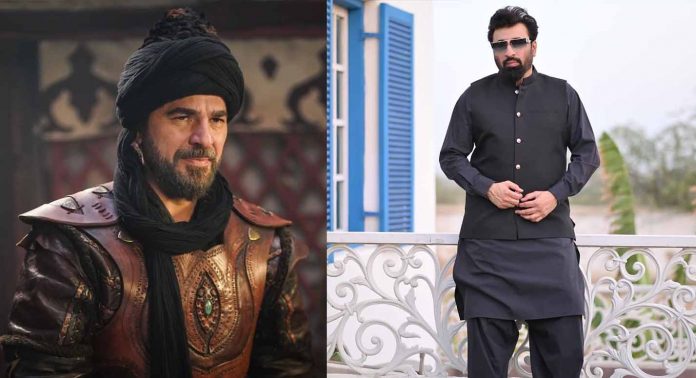Yasir Nawaz and Nida Yasir, both prominent members of Pakistan’s entertainment business, recently discussed the overuse of familiar plot points in TV shows during an interview with Fuchsia Magazine. They talked about the enduring interest in these motifs from viewers all throughout the world. Yasir used the enormous success of the Turkish drama Dirilis Erturul in Pakistan as an illustration.
When asked if, as a director, Yasir would be willing to experiment with new subjects instead of sticking to the usual conflicts between mothers-in-law and daughters-in-law, extramarital affairs, and toxic family dynamics, Yasir responded by saying that television audiences worldwide tend to gravitate towards similar storylines. He went so far as to point out that despite the historical setting of Dirilis Erturul. The epic also had love stories, family dramas, and political intrigue.
Yasir Nawaz claimed that “the world’s television audience watches the same shows.” I’d sit down with Nida to watch it because there’s romance, a mother-in-law, a daughter-in-law, and some scheming, but it would depict battles less.
Nida chimed in, saying that Dirilis Erturul never would have been as successful as it was if its writers had concentrated entirely on military matters. She noted that the show included elements that would interest her. A wide range of people, stressing the need to understand the tastes of potential viewers. Nida added, “If it was just wars, it would not have been a hit,” and Yasir concurred. Generally speaking, “They put in content that the general public wants to see.”
Yasir went on to say that every kind of entertainment—drama, film, theatre, and radio—has its own language and fan base. He stressed that good plays are built around well-defined ideas and that the real skill is in bringing those ideas to life. “Theatre has its own language, cinema has its own language, and radio yet another. Audiences speak in their own dialects. Yasir said, “Drama is made according to a concept; having it be properly made is talent.
The filmmaker mentioned his earlier work, including the Sajal Aly-starring drama series Chup Raho. Which tackled a taboo subject like rape. Yasir emphasized that both he and the show’s writer, Samira Fazal, brought their own aesthetic vision and execution to the production. He then went on to talk about Shukk, another drama with a similar structure that he had seen. “Sajal and I cooked up some Chup Raho. The topic of discussion? The rape of the brother-in-law is a frequent topic of conversation. Samira and I put our own spin on things. Our method of filming it It’s fine; Chup Raho can go. Please take Shuk. Yasir claimed, “Shukk was the same.”
The conversation illuminated the pervasiveness of some drama themes and highlighted the significance of telling these tales in fresh and original ways. It remains to be seen if, while interest in television dramas continues strong. Producers will take chances and investigate fresh topics or stick with the tried-and-true formula that has been successful for years.
